Iranian Police Detain Motorcyclists Offering Ride To Woman Without Hijab
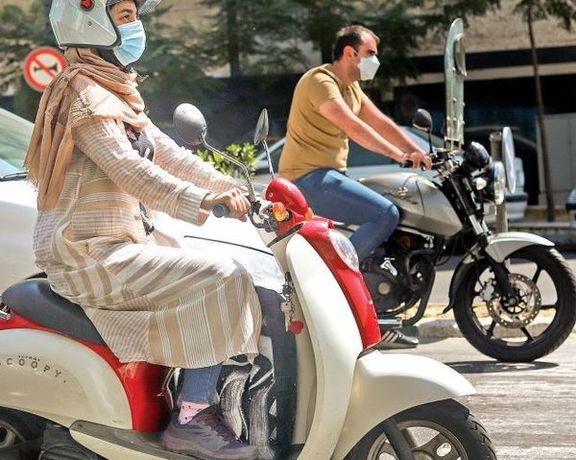
A video on social media shows government security forces in Iran clashing with and detaining a male motorcyclist who was giving a ride to a woman without hijab.

A video on social media shows government security forces in Iran clashing with and detaining a male motorcyclist who was giving a ride to a woman without hijab.
The video shows how law enforcement personnel confiscate a motorcycle from the man, while citizens attempt to thwart their efforts.
In response to the video, a social media user remarked, "It seems like you radical extremists have decided to engage in a full-scale civil war with the great Iranian nation. Be aware that you will face heavy consequences for this, so brace yourselves for the steep toll you will pay."
These events unfold less than a month prior to the anniversary of the tragic killing of Mahsa Amini by hijab police last September, as the regime takes up measures to forestall nationwide anti-regime protests.
In recent months, an increasing number of Iranian women have taken to riding motorbikes on the streets and highways, following the Woman, Life, Freedom protest movement that erupted in September 2022. Riding motorcycles, along with ditching the hijab, has become a courageous act emblematic of the civil rights struggle by women.
Prior to the 1979 revolution that ushered in the Islamic regime in Iran, women were permitted to ride motorcycles. However, in the subsequent years, along with forced hijab, riding motorcycles and even bicycles became restricted.
Nonetheless, numerous Iranian lawyers and activists contend that since Iranian women are permitted to ride motorcycles as passengers, there is no rationale for barring them from being drivers.
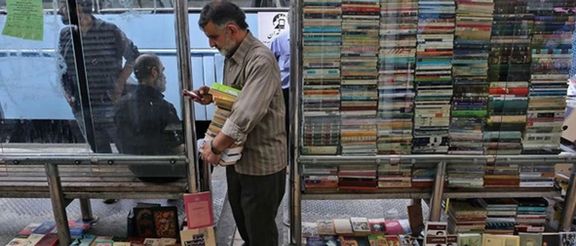
The Ministry of Culture in Iran has come under criticism for censoring a sentence indirectly critical of Russia in the translation of a psychology book.
The sentence in question, "Putin's bombing of Ukraine," was allegedly censored, shedding light on a wider discussion about regime influence on literary and scientific content.
Asadollah Amrayi, a famous translator and journalist, revealed the alarming development, stating that the ministry has demanded the removal of the sentence related to Ukraine's from the translated book.
Taking to the social platform X (formerly known as Twitter), Amrayi expressed his astonishment: "Can you believe that in a motivational psychology book, the Culture Ministry has demanded the removal of [such a sentence?]” The incident has sparked conversations on social media, with some interpreting the ministry’s actions as a reflection of a "Russophile" stance, hinting at a government bias towards Russia.
Interestingly, the media landscape in Iran presents a skewed view of Russia's invasion of Ukraine, often favoring Moscow's perspective. This episode has also given rise to comparisons with George Orwell's dystopian novel 1984, with some users likening the Ministry of Culture to the infamous Ministry of Truth. This fictional institution altered historical events to suit the regime's narrative.
Censorship of books in Iran has a long history, but it has intensified under the influence of the Islamic Republic. In a recent report, Foreign Policy highlighted the mounting apprehension and control within cultural domains over the past two years. Various artistic fields have been hampered by the conservative policies of President Ebrahim Raisi's government, leading to challenges for independent artists working within an atmosphere of fear and restraint.

Iran's top Sunni cleric Mowlavi Abdolhamid has compared protests in Iran and Israel, noting that Prime Minister Benjamin Netanyahu did not kill any protesters.
Abdolhamid, who has emerged as an outspoken critic of the regime in the past year, made the remarks during his Friday prayer sermons, referring to large-scale protests underway in Israel since early 2023 in response to the ruling government's push for a wide-ranging judicial overhaul.
In Israel, 123 protesters were injured and about 700 people were arrested since January. In Iran, well over 500 protesters were killed by regime’s agents while the number of the injured – including those who lost eyesight – is so high that cannot be estimated. At least 22,000 were arrested, with seven executed and some on death row on trumped up charges.
Comparing how the Israeli government is handling the protests with what the Islamic Republic is doing, he said, "It's astonishing that in Israel, not even one person from the protesters and forces opposing the government has been killed. Israel kills Palestinians but not its own people. They differentiate between their own nation and others. But why isn't it the same here?"
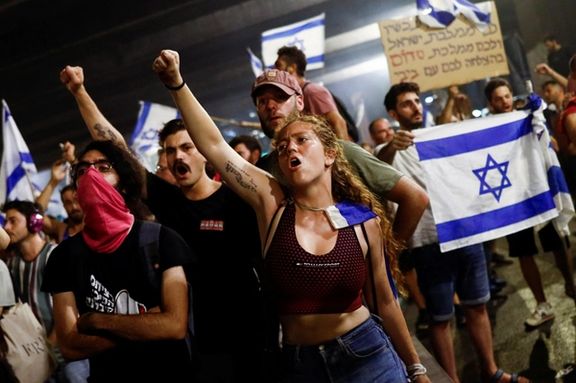
Abdolhamid said, "Everyone in Israel has revolted and protested that Netanyahu wants to lead the government towards dictatorship. Pilots and reserve army forces have resigned because they don't want to defend a dictatorship,” implicitly calling on Iranian military officials to break their silence in the face of injustices.
The cleric rebuked the authorities who continue to threaten people to discourage them from further demonstrations as the anniversary of anti-regime protests approaches in mid-September, and the regime has intensified its intimidation campaign. "Recently, one of the Basij commanders said that if there is another protest, we will suppress it. Suppressing the people is not the right approach. The Basij should listen to the people's grievances.People have problems; they are hungry; they are humiliated and are stuck in a deadlock.”
He condemned those officials who are not independent in their decisions and turn a blind eye to the country’s problems and corruption, emphasizing that there are no prospects for a better future for Iran. Referring to the inability of the government to deal with Iran's critical issues, he said, "Day by day, the country's crises deepen, and the nation is facing endless problems. Now, with the arrival of a new parliament and administration, are these problems supposed to be resolved," Abdolhamid said referring to parliamentary elections in March.
"If there is no bright prospect and the new parliament will only repeat the same old tactics, while people's vote would have no impact, it will be all futile," he added.
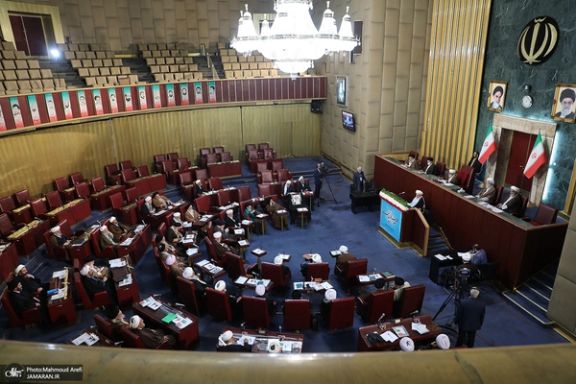
Implicitly alluding to Iran's leader Ali Khamenei, he emphasized the necessity for all individuals, regardless of their status, to be subject to accountability without being treated as untouchable "red lines." He labeled this issue as the regime's "greatest danger," condemning the reluctance of senior officials to heed the grievances of the people, especially those whose identities remain concealed from public discourse. Critically assessing the Assembly of Experts for Leadership—an authoritative body responsible for appointing the Supreme Leader—Abdolhamid asked, “What is the purpose of this council if its members cannot oversee the organizations and institutions under Khamenei’s control?”
The forthright Sunni leader remarked that unless there is a shift in perspectives and policies, coupled with substantial transformation that genuinely serves the people, the ongoing challenges will endure. He stressed that merely altering parliamentary representatives, the Assembly of Experts, or the presidency will not suffice to address these persistent issues.
Following his sermons, people in several Sunni majority cities in Sistan-Baluchestan, including the provincial capital Zahedan, poured onto streets and chanted slogans to demand the release of political prisoners. Residents have been protesting every Friday since last September when sucurity forces killed around 90 civilians during a Friday protest.
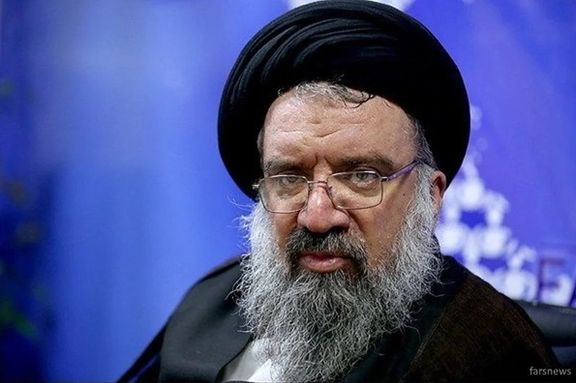
Ahmad Khatami, Friday Prayers Imam in Tehran, has issued a warning to protesters, not to hold demonstrations next month at the anniversary of last Year's protests.
Khatami stated during his Friday sermon, "Throughout these years, enemies have managed to do whatever they could, and even in recent riots, they claimed they came to overthrow, but ended up being overthrown and defeated."
Supreme Leader Ali Khamenei's frequent usage of the term "Enemies" to denote nations like the United States, Israel, and their allies in Europe, underscores the narrative that persists within Iran's leadership.
Khatami's threat intensified as he declared, "If they intend to engage in mischief, they will be punched in the mouth." The interim Friday Prayer Leader of Tehran further reinforced the message, stating, "If they still cling to illusions, they must recognize that they will face destruction and must unequivocally accept this reality."
Meanwhile, Iranian President Ebrahim Raisi recently issued a statement addressing protests against the compulsory hijab, asserting that these actions are being driven by foreign influence. Raisi emphasized a strategic response to quell the demonstrations, prompting speculation of a more robust crackdown on those challenging the hijab policy.
Raisi's assertion regarding the hijab policy is noteworthy considering the persistent defiance of Iranian women and girls against the mandated headscarf. This movement, colloquially known as "the removal of the hijab," has gained momentum despite the state's efforts to suppress it. The upcoming anniversary of the tragic death of Mahsa Amini while in custody of the morality patrol serves as a somber reminder of the ongoing tensions surrounding this issue.
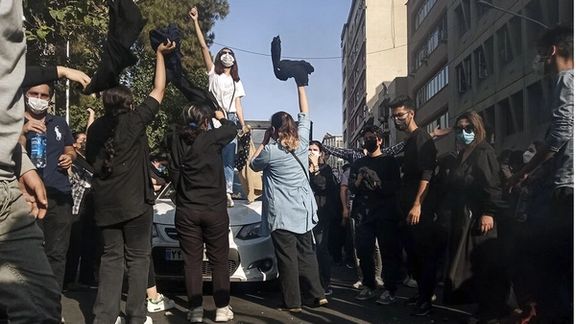
With the anniversary of Women, Life, Liberty protests on horizon, the Islamic Republic regime has intensified its intimidation campaign to discourage potential unrest.
Families of protesters who died during the uprising as well as civil and human rights activists and students are the main target of the regime’s repression apparatus, that wants to silence the most prominent popular voices.
Dozens of the victims’ families and protesters who were detained and released during the nationwide rallies in the past year have been arrested or summoned, with reports coming from several provinces, including Tehran, Gilan, Kordestan, West Azarbaijan, and Esfahan (Isfahan).
On Thursday, security forces detained Kourosh Vaziri, whose 35-year-old wife Shirin Alizadeh was killed by regime agents while she was filming protests alongside her husband and child in Mazandaran province last September. Security agents ordered the family not to mark her birthday this week, which they had to accept, but the agents went for the husband and arrested him anyway.
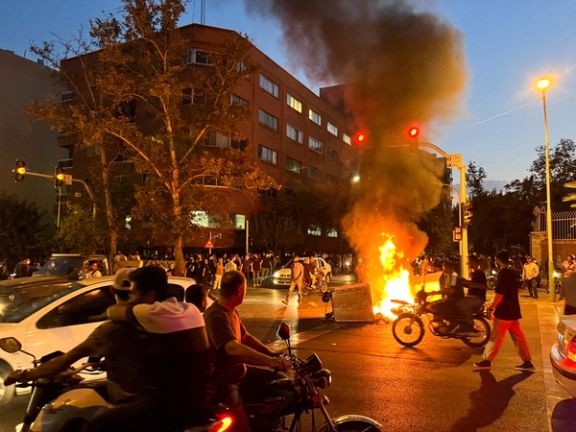
Mahsa Basiratavana, the sister of Mehran Basiratavana – shot dead by security forces in November – was also arrested on Thursday. Mahsa Basiratavana is among a dozen more residents in Gilan province who have been arrested this week, including five women's rights advocates, a photographer, a poet, a graphic designer, and three pharmacists.
On Wednesday, family members of Komar Daroftade -- a 16-year-old boy who was shot from close range in Piranshahr, West Azarbaijan province – were detained and interrogated.
In the capital Tehran, the security forces detained Negar Sardari at her residence and transferred her to an undisclosed location on Wednesday. She is the spouse of Mehdi Etemad-Saeed, a theater actor who was detained several weeks ago.
Elaheh Askari, a photographer and blogger, has also been detained by the Ministry of Intelligence in Tehran. Hamidreza Askari, her brother, wrote on his Instagram page: "On Thursday, after my sister visited the passport office to retrieve her passport, she was detained and transferred to Evin Prison."
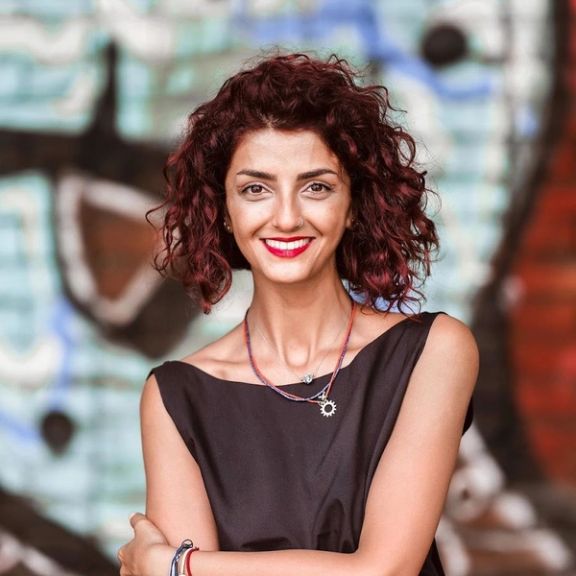
Hengaw Human Rights Organization, a Kurdish rights group, said Thursday that at least 15 people have been arrested in Kurdish majority cities in the past few days. "Government forces, without presenting any judicial warrant, raided the homes of these citizens in Mahabad and Oshnavieh, instilling fear and intimidation, and subsequently arrested them and transferred them to undisclosed locations."
These are only several instances in an escalating string of government clampdowns on activists, students, educators, and writers in the lead-up to the September 16 anniversary of Mahsa Amini’s death at the hands of police.
Over the past several weeks, the intelligence ministry and the Revolutionary Guard (IRGC) intelligence organization (SAS) have been reaching out to individuals who were arrested during the anti-regime protests. They are warning them not to participate in any demonstrations on the anniversary of the protest movement, according to sources in Iran who spoke to Iran International.
Those summoned by the intelligence agencies have been asked to sign pledges to stay at home for a week, and some have even been required to take time off from work, ensuring their absence from any protests. They have been threatened with arrest if they are found engaged in any pro-protest movement activities in public or on social media.
Political analyst Ali-Hossein Ghazizadeh said Friday on X that the Intelligence Ministry’s campaign of arrests and intimidation has been “unprecedented” even for the Islamic Republic. “The problem with these incompetent intelligence agencies is that they fail to understand the nature of society's behavior,” he said, adding, “They fail to grasp that when the roots of discontent have spread to the extent that you are compelled to conduct such massive arrests across the country and from various strata of society, the regime has lost the reins of control.”
He noted that when a society is determined to revolt, security measures can only delay it for so long, predicting that “The people will return to the streets, with even stronger motivations to overthrow this regime. Motivations that the Islamic Republic itself is providing for them.”
On Thursday, Supreme Leader Ali Khamenei held a meeting with a large group of Revolutionary Guard commanders and praised them for their performance, which has resulted in the deaths of 500 civilians, with thousands more injured and tens of thousands arrested. So far, seven protesters have been executed, and several others face execution.
Earlier in the week, hardliner cleric and member of the Iranian Assembly of Experts Ahmad Khatami issued a stern threat against any future protesters, saying that they would be met with forceful suppression, as if the current rounds of suppression are not forceful.
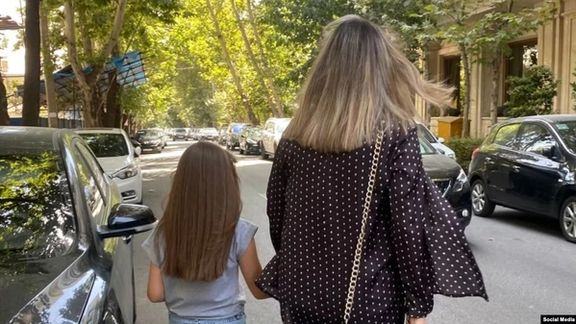
An editorial in Kayhan, Iran’s hardliner daily newspaper, has suggested that girls under 18 who do not wear the mandatory hijab should be arrested.
The article titled ‘A Nudge to the Architects of the Chastity and Hijab Bill,’ indirectly called for assertive action to be taken against unveiled minor girls.
This viewpoint emerges in response to a statement made by the Speaker of the Parliament on August 13, who said that girls under 18 would not be subjected to summoning or police involvement under the Chastity and Hijab Bill, which penalizes women who fail to observe the compulsory dress code.
Also responding to the statement by the Speaker of the Parliament, pro-reform Sazandegi newspaper said the statement was a "blatant confession" and proves that the regime is driven by political and ideological motives rather than Islamic jurisprudence, otherwise girls under 18 cannot be exempted and are accountable for their hijab at puberty.
Meanwhile, lawmaker Gholamreza Nouri Ghezeljeh revealed that Article 5 of the bill stipulates that minor students violating the law three times will face referral to the disciplinary committee or the security office of their educational institution. Nouri emphasized the need to scrutinize the bill's architects and their intentions within the educational context, highlighting a lack of comprehensive understanding among decision-makers.